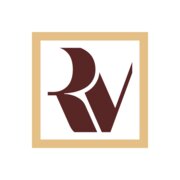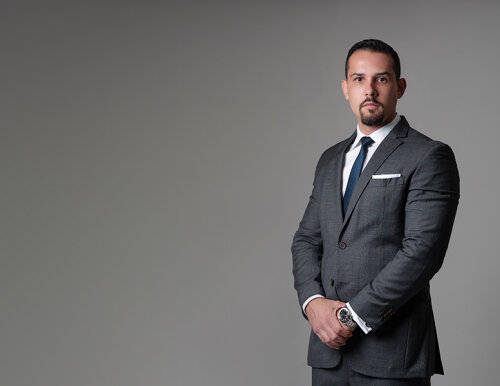Best Transportation Lawyers in Brazil
Share your needs with us, get contacted by law firms.
Free. Takes 2 min.
Or refine your search by selecting a city:
List of the best lawyers in Brazil
About Transportation Law in Brazil
Transportation law in Brazil encompasses a broad range of regulations governing the country's diverse transportation systems, including air, rail, road, and maritime transport. Brazil is one of the largest countries in the world, which necessitates a comprehensive and complex transportation network. The legal framework is designed to ensure safety, efficiency, and environmental protection while facilitating the movement of goods and people. Key regulatory bodies include the National Land Transportation Agency (ANTT), the National Civil Aviation Agency (ANAC), and the National Agency for Waterway Transportation (ANTAQ).
Why You May Need a Lawyer
Individuals and companies may require legal assistance for various reasons related to transportation in Brazil. Common situations include disputes over transportation contracts, regulatory compliance issues, liability in transportation accidents, and negotiating with government entities for permits or licenses. Lawyers specializing in transportation law can assist in navigating the complexities of these legal matters, ensuring compliance with the relevant laws, and providing representation in disputes or litigation.
Local Laws Overview
Brazilian transportation law is characterized by extensive regulations that apply at both the federal and state levels. Key aspects include:
- Federal Constitution and Codes: Provides the overarching framework for transportation regulations.
- Brazilian Traffic Code (CTB): Governs road transportation and traffic regulations, including driver and vehicle licensing.
- Maritime Code: Regulates maritime transport, including ship registration and navigation safety.
- Air Navigation Code: Covers aspects related to civil aviation, airspace use, and passenger rights.
- Rail Transport Regulations: Oversight by ANTT, ensuring compliance with safety and operational standards.
Frequently Asked Questions
What are the main regulatory bodies for transportation in Brazil?
The primary regulatory bodies include the National Land Transportation Agency (ANTT), the National Civil Aviation Agency (ANAC), and the National Agency for Waterway Transportation (ANTAQ).
How are transportation disputes typically resolved in Brazil?
Disputes may be resolved through negotiation, mediation, or litigation, depending on the nature and complexity of the issue. Specialized transportation lawyers can guide you through these processes.
What should I do if I have a traffic accident in Brazil?
Report the accident to the police, exchange information with other parties involved, and contact your insurance company. Legal advice may be necessary, especially if there are injuries or significant damage.
How do I comply with environmental regulations in transportation?
Brazil has strict environmental laws; compliance involves following specific guidelines related to emissions, waste disposal, and fuel use. Consulting with a lawyer or environmental specialist is recommended.
What are my rights as an air passenger in Brazil?
Passengers have rights related to flight delays, cancellations, and overbookings, as outlined by ANAC. Compensation may be available depending on the circumstances.
How can a company obtain transportation permits in Brazil?
Permits are required for various transportation activities and are issued by relevant agencies such as ANTT or ANTAQ. Legal assistance can be beneficial in navigating the application process.
Are there specific laws for international shipping in Brazil?
Yes, Brazil follows international maritime conventions and treaties, alongside its domestic Maritime Code, to regulate international shipping activities.
How does Brazil handle railroad transportation safety?
Rail transport safety is overseen by ANTT, which enforces regulations on maintenance, operation, and safety protocols to prevent accidents and ensure efficient service.
What should I consider when drafting a transportation contract in Brazil?
Key considerations include liability clauses, terms of service, compliance with federal regulations, and legal jurisdiction. Legal advice is crucial in contract drafting.
How is urban mobility addressed legally in Brazil?
Urban mobility is addressed through local government initiatives and regulations promoting public transportation, non-motorized transport, and sustainable urban planning.
Additional Resources
For further information and assistance, consider reaching out to the following resources:
- National Land Transportation Agency (ANTT): Governs road and railroad services.
- National Civil Aviation Agency (ANAC): Regulates civil aviation operations.
- National Agency for Waterway Transportation (ANTAQ): Manages waterway transportation issues.
- Brazilian Bar Association (OAB): Can help locate licensed lawyers specializing in transportation law.
- Local Chambers of Commerce: Often provide resources for businesses involved in transportation.
Next Steps
If you need legal assistance in the field of transportation in Brazil, consider taking the following steps:
- Identify Your Needs: Determine the specific legal issue you are facing.
- Research Lawyers: Look for attorneys who specialize in transportation law. The OAB website can be a helpful resource.
- Schedule Consultations: Meet with a few potential lawyers to discuss your case and determine who you feel comfortable working with.
- Gather Documentation: Collect all relevant documents and information related to your case, such as contracts, permits, and correspondence.
- Understand Legal Fees: Discuss and agree on fee structures before proceeding with any legal action.
Lawzana helps you find the best lawyers and law firms in Brazil through a curated and pre-screened list of qualified legal professionals. Our platform offers rankings and detailed profiles of attorneys and law firms, allowing you to compare based on practice areas, including Transportation, experience, and client feedback.
Each profile includes a description of the firm's areas of practice, client reviews, team members and partners, year of establishment, spoken languages, office locations, contact information, social media presence, and any published articles or resources. Most firms on our platform speak English and are experienced in both local and international legal matters.
Get a quote from top-rated law firms in Brazil — quickly, securely, and without unnecessary hassle.
Disclaimer:
The information provided on this page is for general informational purposes only and does not constitute legal advice. While we strive to ensure the accuracy and relevance of the content, legal information may change over time, and interpretations of the law can vary. You should always consult with a qualified legal professional for advice specific to your situation.
We disclaim all liability for actions taken or not taken based on the content of this page. If you believe any information is incorrect or outdated, please contact us, and we will review and update it where appropriate.
Browse transportation law firms by city in Brazil
Refine your search by selecting a city.
















